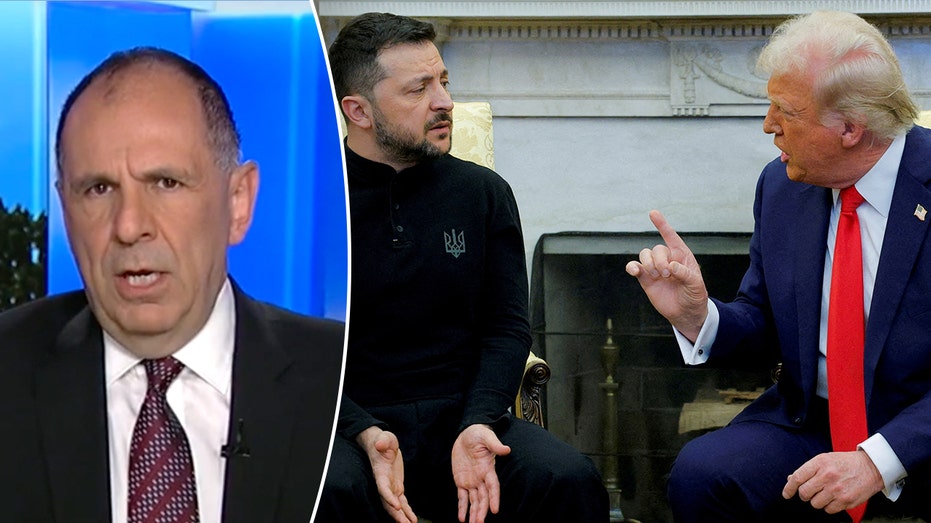Europe Must Lead on Ukrainian Security Guarantees, Greek Foreign Minister Says: 'We Are the Neighbors'

Sarah Johnson
March 4, 2025
Brief
Greek Foreign Minister urges Europe to lead in Ukraine’s future, discusses NATO defense, sanctions enforcement, transatlantic unity, and new alliances amid global security challenges.
Greek Foreign Minister George Gerapetritis has called for Europe to take the leading role in securing Ukraine’s future, emphasizing the continent’s responsibility as a close neighbor. In an interview during his visit to the U.S., Gerapetritis underscored the need to end hostilities in Ukraine before planning for reconstruction and long-term security guarantees.
"The day after [the conflict ends] will give the opportunity for considerations about reconstruction and about the security guarantees," Gerapetritis said, adding that Europe must step up. "We are the neighbors, and we have to take the responsibility for these. We need backing up from the United States, but, of course, Europe should have the major stake." Bold words, but are they loud enough to get the entire EU on the same page?
His remarks come amidst ongoing tensions involving Ukrainian President Volodymyr Zelenskyy and former U.S. President Donald Trump. Zelenskyy, who was recently escorted out of the White House after a heated exchange, has been vocal about the need for U.S. security guarantees alongside European commitments. Trump’s administration, however, insists Europe must take primary responsibility, with U.S. involvement tied to its own economic interests in Ukraine.
Adding some irony to the mix, Greece has been a vocal advocate for increased defense spending within NATO, surpassing the alliance’s 2% GDP target by bumping its own defense budget to 3%. Yet, Greek-owned oil tankers have been linked to Russia's "shadow fleet," used to sidestep Western oil sanctions. Gerapetritis acknowledged the issue, stating that Greece is collaborating with the European Union to tighten enforcement of sanctions and close any loopholes.
"We are imposing not only the sanctions imposed by the European Union, but also our own national sanctions," he explained. "We’re working on this with allies within the European Union." It’s a balancing act that might make even a tightrope walker sweat.
During his U.S. visit, Gerapetritis also sought to reinforce the transatlantic alliance, emphasizing unity in tackling global crises. "Transatlantic relations must remain intact and strong," he said. "United, we have a lot more leverage to deal with multiple crises, which is the new normality. So we have to stay together." He’s not wrong—when the world feels like it’s on fire, a solo bucket brigade won’t cut it.
Beyond Ukraine, Gerapetritis’ agenda included discussions with U.S. officials on countering China’s influence. He highlighted a new partnership with India to establish a transport and energy corridor through Greece, a direct challenge to China’s use of the Port of Piraeus as a gateway to Europe. "This major plan is, I think, an excellent project," he said. "We are very likeminded with the United States when it comes to foreign and security policy."
Other key topics included maritime security in the Red Sea, concerns about Iran’s regional proxies, and the situation in Syria. Gerapetritis advocated for a cautious, phased approach to lifting sanctions on Syria’s government while maintaining the ability to reimpose them if necessary. "We suggest that we need to have a release on these sanctions. But that should take place mostly on a gradual basis. We need to see how it goes," he said.
From Ukraine to Iran, Greece seems eager to play a pivotal role on the global stage. But with its own shipping industry under scrutiny and Europe still fragmented on key issues, it remains to be seen whether Gerapetritis’ vision of a united and proactive Europe can become reality.
Topics
Editor's Comments
Gerapetritis is making a strong pitch for Europe to lead on Ukraine, but the cracks in the EU's unity are glaring. The fact that Greek-owned oil tankers are enabling Russia’s trade while Greece pushes for NATO solidarity is a twist worthy of a political thriller. Europe’s house needs some serious cleaning before it can lead effectively.
Like this article? Share it with your friends!
If you find this article interesting, feel free to share it with your friends!
Thank you for your support! Sharing is the greatest encouragement for us.



